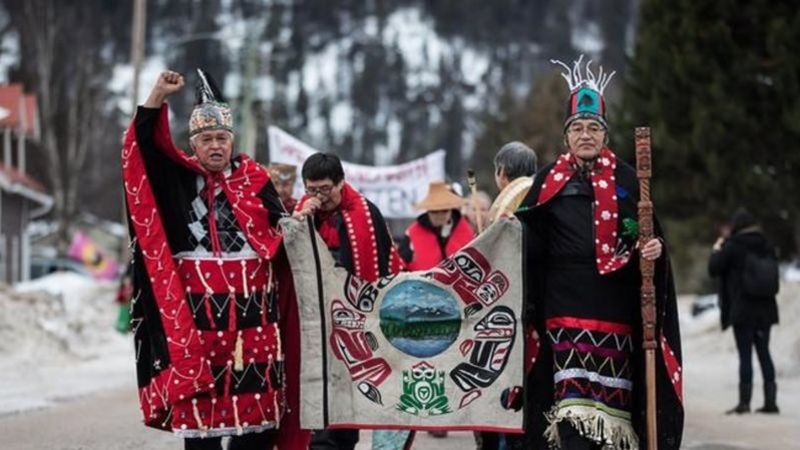
CHARBONNEAU: Agreement with Wet’suwet’en hereditary chiefs was either crafty or naive
OVER A YEAR AGO, governments rid themselves of a political problem and passed it on to the Wet’suwet’en people of B.C.’s northern interior.
Governments had to “do something” when protesters in support of the Wet’suwet’en hereditary chiefs blocked railways and shut down freight and passenger traffic for several weeks.
In Kamloops, traffic was held up at the intersection of Summit and McGill by 30 to 40 protesters on February 7, 2020, supporters of the Wet’suwet’en hereditary chiefs. Bronwyn, 12 years old, told NL News:
“I just think it’s really wrong to be destroying Mother Nature with all these pipes and everything,” she said. “We were here, we were brought here and then we are destroying our world that we live in. We only have one world.”


